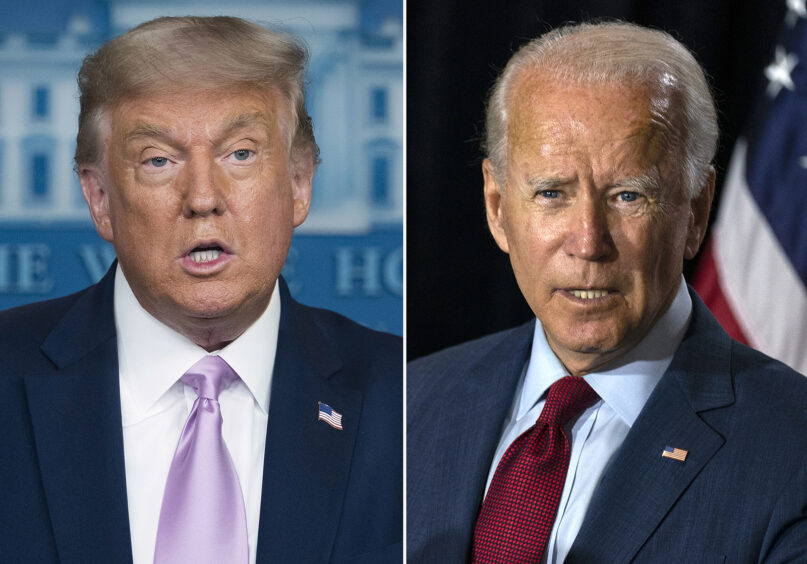(RNS) — Many religious people in America are experiencing intense grief: After months of social distancing, many of us are still deprived of in-person worship. After months of enduring dueling national pandemics of racism and coronavirus, we are missing the communities that sustain us. But most of all we are missing hope.
The two major party presidential campaigns, ever in search of the infamous “swing voter,” should keep this fact in mind as they appeal to that elusive persuadable person who has yet to decide who they’ll vote for — if they vote at all. The presidential election of 1996 had “soccer moms.” 2004 had “NASCAR dads.” 2008 had the now-infamous Sarah Palin-termed “hockey moms.”
In 2020, undecided voters are more likely to be female, less likely to have a college degree, more likely to be younger, from a diversity of racial backgrounds and identify as independent or non-political. The deepest concerns are health care, the pandemic, race issues, economic inequality and climate change.
In the past few weeks of conventions and campaigning, Republicans and Democrats alike have made forceful appeals to Americans who care about religion, Joe Biden emphasizing his Catholic upbringing to pull in his coreligionists in the Northeast. Donald Trump is working to shore up his base among white evangelicals who, unlike in past years, are raising Democrats’ hopes they can be poached away in sufficient numbers.
But it’s quite possible that the majority of religious Americans will vote for whichever candidate best understands their grief and shows deep empathy for them, the candidate they trust will restore hope and help them heal. Call these swing voters the Forgotten Faithful.
The common narrative is that American Christians will rally to any candidate who promises to deliver on abortion legislation, like defunding Planned Parenthood or overturning Roe v. Wade. This should come as no surprise, since headlines about evangelicals dominate, despite evangelical Christians making up only one-fourth of all people who identify as Christian in the United States.
But virtually no poll suggests this is the case. Polling trends suggest instead that abortion is an issue of at best middling importance for Christians. The great majority of Christians do not want to see Roe v. Wade overturned.
With so much of this season’s political talk focused on “evangelicals,” this majority of people of faith feels forgotten — by career politicians, by the media, quick with headlines that place religious people into monolithic identity boxes. They feel forgotten even by so-called Christian leaders who take money from poor and working-class people and fly around the world on private jets and drive around in Hummers.
These forgotten Christians include many faith leaders who are getting involved in the electoral process for the first time. Just last week, frustrated by the lack of media attention regarding the reality that children are still being separated from their families and placed into detention, over 450 faith leaders called upon President Trump to change course.
This letter was organized by the New Moral Majority, a progressive movement that I founded, based in the teachings of Jesus, that informs, energizes and empowers the faithful to fight and win for our values.
Faith is often where one looks as one searches for a moral compass. In fact, a Pew study released this February showed that 94% of all Americans view it as important to them to have a president who lives a “moral, ethical life.”
That criterion doesn’t boil down to a single issue stance such as “pro-life” or in appeals to a single voting bloc. The forgotten faithful see their lives, and their children’s lives, not as single issues, but as a network of concerns that hinge on one idea: love for your neighbor.
Parents who’ve been told all their lives that we fight for life have now seen an administration fail to act upon information they knew would save lives, letting almost 200,000 people die. People who’ve had family values drilled into their heads now see children abducted from their parents and concentrated in camps at the southern border.
Moral leadership may be more complicated than reaching out to one group of Christians or to one idea about what faith is, but I don’t think it’s too much to ask from our next president.
(Ryan Eller is the founder of New Moral Majority and an ordained Baptist minister who has led some of the nation’s largest narrative and social change organizations. The views expressed in this commentary do not necessarily reflect those of Religion News Service.)





